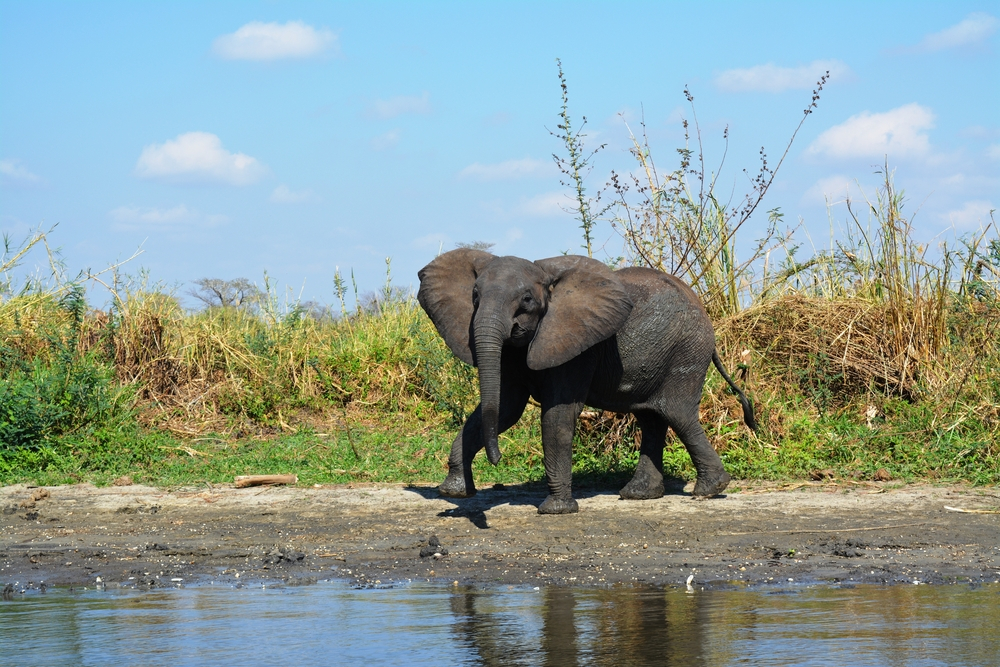
The small southern African nation of Malawi is about to literally pick up 500 huge elephants from one side of the country and drop them in another, in one of the most ambitious wildlife relocation projects the continent has ever seen.
The giant-moving mission—which is being managed by not-for-profit Johannesburg-based group African Parks, in collaboration with the Department of National Parks and Wildlife—will begin this week in Liwonde National Park, where over half of Malawi’s current population of 1,500 elephants live.
The animals will be shot with darts by rangers in helicopters, before being lifted onto trucks by cranes and driven 300km to a newly created sanctuary in Nkhotakota, where they’ll eventually be joined by more elephants from Majete Wildlife Reserve.
Despite international efforts, the slaughter of African elephants for their ivory has continued pace in the 21st century, with 20,000 elephants being illegally killed last year alone. The total global population is now estimated at lower than 450,000, down from as many as 5 million in the early 20th century, according to the WWF.

Besides poaching, habitat loss and conflict with humans have both led to elephant deaths across the continent, but in some areas conservation efforts have led to pockets of overpopulation and the situation is complicated.
‘There’s a paradox in Africa where elephants are in steep decline in certain places but require population management in better-protected areas where their numbers are growing,’ says Andrew Parker, operations director at African Parks.
Parker explains that ‘surplus elephants’ in some parts of Malawi have been stripping large tracts of vegetation and coming into conflict with communities around Majete and Liwonde, where there numbers are large. To resolve the problem, 500 of the enormous animals are being moved to Nkhotakota, where the elephant population has dramatically dropped from 1500 to just 100.
At the Nkhotakota Wildlife Reserve, which is close to Lake Malawi, a 16,000-hectare sanctuary has been constructed, creating a safe and secure habitat for the elephants to settle in, before they’re released into the wider reserve. Besides elephants, there are plans to relocate another 1500 animals from a variety of species to the reserve.
The move is being welcomed by Malawi Tourism, who see eco safaris as the future for encouraging increased visitation to the impoverished country, while new sanctuaries are a way to ‘safeguard the future for these magnificent animals’.
[geoip-content not_country=”CA”]
If you’d like to learn more about the wild side of this amazing African nation, why not watch Malwai and the Lake of Stars, now streaming on the Love Nature app.
ON THE APP
 Malawi and the Lake of Stars
Malawi and the Lake of Stars
Journey to the shores of the cradle of humankind. Lake Malawi, one of the largest lakes in Africa is a flourishing underwater ecosystem. See how the thousands of species of cichlid fish make for colourful constellations in the Lake of Stars.
[/geoip-content]

